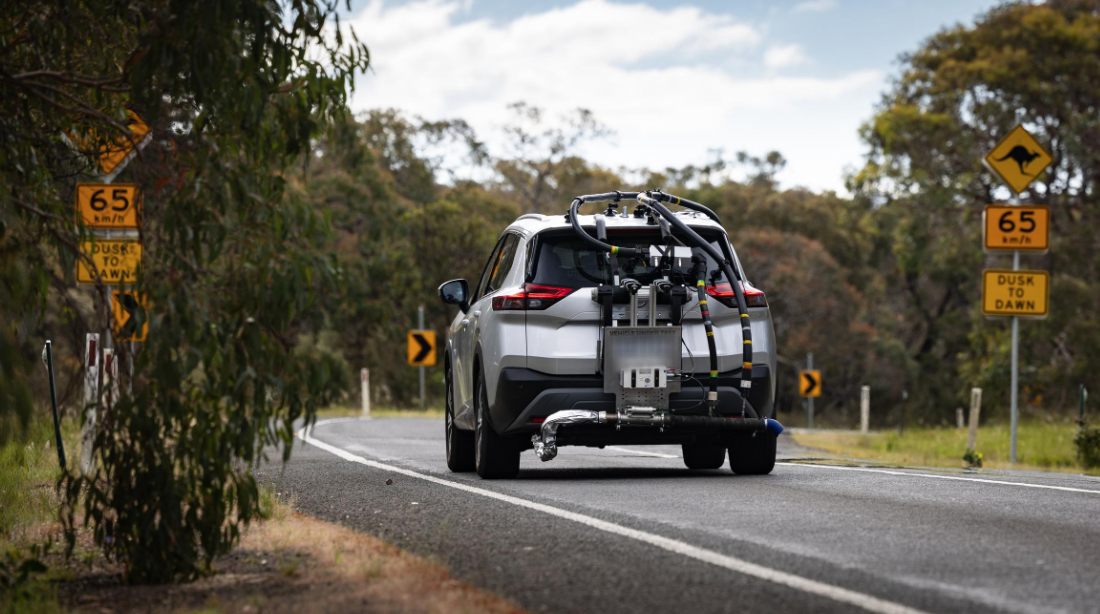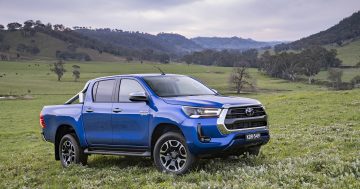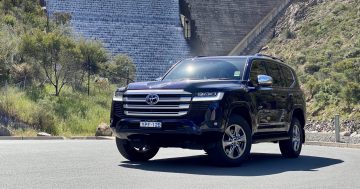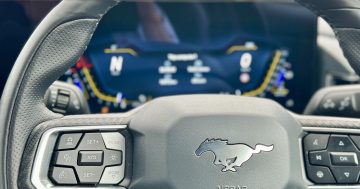
The Coalition will dump penalties associated with the New Vehicle Efficiency Standard. Photo: Australian Automobile Association (AAA).
Peter Dutton will scrap Labor’s vehicle efficiency standards penalties, which the Opposition Leader has described as a tax on families and small businesses that drive utes and 4WDs.
The New Vehicle Efficiency Standard (NVES) became law in January and is set to kick in from July, with penalties being accrued until 2028 when the first fines would be issued.
NVES applies an emissions limit on the total number of new cars sold in the Australian market from each manufacturer.
There are heavy penalties for companies that exceed the limits.
The scheme’s aim is to encourage the uptake of electric vehicles and to help cut car emissions overall.
But Mr Dutton says the law will only increase the cost of utes and 4WDs dramatically and unfairly.
“This is a tax on families who need a reliable car and small businesses trying to grow,” he said.
“Instead of making life easier, Labor is making it harder and more expensive.”
If it plays out as planned, fully electric vehicles would become cheaper as manufacturers receive credits for selling new cars with lower emissions, with targets becoming tougher each year.
Some manufacturers of utes and 4WDs, however, have already flagged increasing prices of such vehicles to compensate for any imposts caused by the scheme’s targets.
There have also been criticisms of the scheme from some car manufacturers.
The Coalition has estimated that the cost of a RAV4 could increase by $9700 by 2029, and a Ford Ranger by $14,400, under the scheme.
Mr Dutton said on Thursday (10 April) that he would get rid of the NVES completely if he is elected prime minister.
But speaking from the campaign trail in Darwin on Friday, Anthony Albanese labelled the Coalition’s plan as “nonsensical” and suggested the policy wouldn’t last long.
“I find it extraordinary that Peter Dutton, who says he cares about the price of fuel, doesn’t want people to have more fuel-efficient cars, which reduce the cost of filling up their car,” the Prime Minister said.
“It is a nonsensical policy that Mr Dutton came up with but I await a couple of days’ time.
“He’ll probably have another one on the same thing.”
The Coalition plans to keep the emissions standards as an incentive for manufacturers to produce cleaner vehicles, but it will not be applying penalties.
Shadow Transport Minister Bridget McKenzie said while the Coalition supported low-emissions vehicles, EVs were practical for many families.
“We want cleaner, cheaper cars on Australian roads as we head towards net zero by 2050,” she said.
“But forcing unfair penalties on car makers and consumers is not the answer.”
The new announcement from the Coalition complements Mr Dutton’s promise made during his budget reply speech in March to halve the fuel excise for 12 months.
The Opposition Leader says he will cut the excise from 50.8c to 25.4c per litre of fuel, claiming the measure will save some drivers $750 a year – based on a 55L tank being filled once a week.
“We will provide immediate cost-of-living relief for Australians,” Mr Dutton said in his budget reply speech.
“A Coalition government will halve the fuel excise for 12 months, and then we’ll review it, and we’ll make sure that that comes in on the first day that our parliament sits.
“For a household with one car filling up once a week, that’s a saving of $14 a week on average – or around $700 over 12 months.
“For a household with two cars filling up once a week, that is a saving of $28 a week on average – or around $1500 over 12 months.
“Compare that to 70 cents a day in 15 months’ time.
“Working with industry, we will ensure that heavy-vehicle road users also benefit from this measure.
“The ACCC will ensure that the fuel excise cut will be passed on in full to consumers. The policy will cost $6 billion.”
Car manufacturing and the global car market have been thrust into a crisis of uncertainty since US President Donald Trump began his imposition of tariffs on goods imported to America from all nations.
Original Article published by Chris Johnson on Region Canberra.





